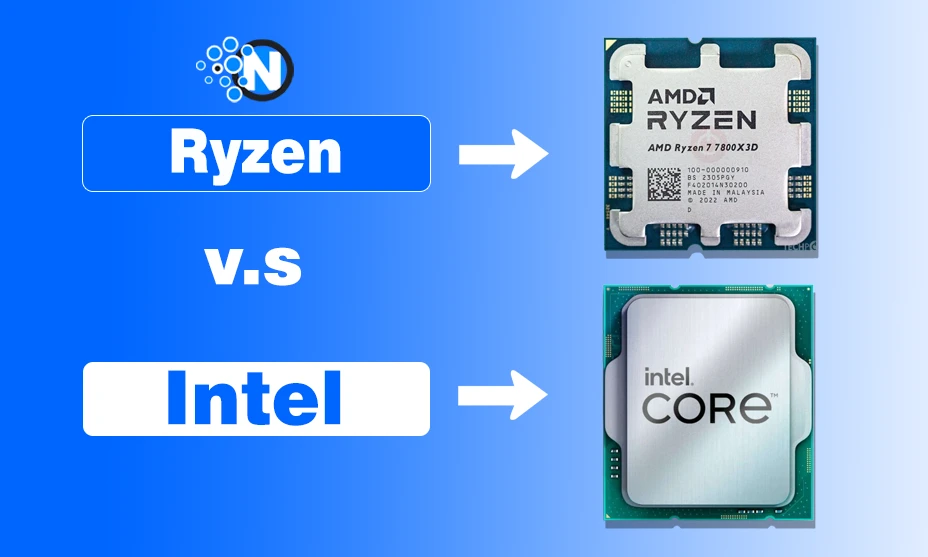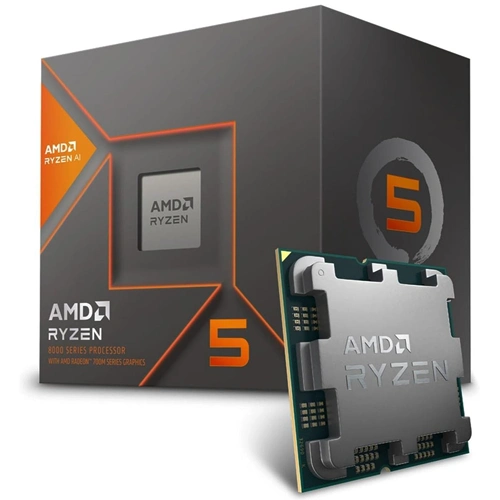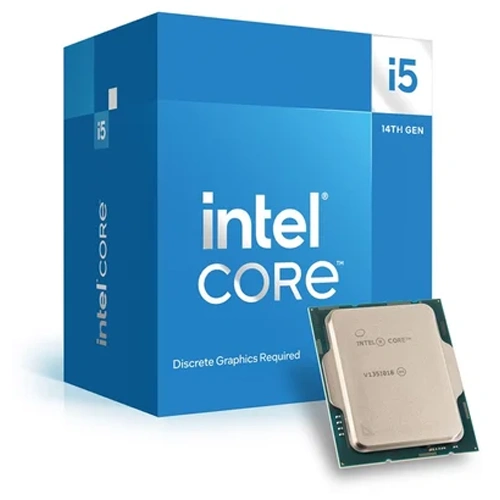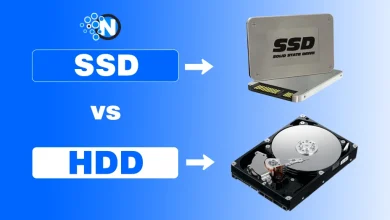Ryzen vs Intel – Which Processor Reigns Supreme in 2025?

When it comes to building or upgrading a PC, it is essential to choose the right processor to get optimal performance. For so many years, AMD Ryzen and Intel have dominated the CPU market as they offer top quality products that resonate with the preferences of many users. This has raised the Ryzen vs Intel battle as people are eager to know which is the best pick.
In 2025, the competition between Ryzen and Intel is going to intensify further as both companies are releasing more powerful processors. In this blog post, I have provided a general overview of both to let you know which processor reigns supreme in the coming year.
What is Ryzen?
Ryzen is a line of processors developed by AMD (Advanced Micro Devices), designed for desktop computers, laptops, and other devices. Among gamers, producers, and casual users, these processors are well-known for their great performance, energy economy, and reasonable cost.
Ryzen processors use AMD’s Zen microarchitecture and come in various models, such as Ryzen 3, Ryzen 5, Ryzen 7, Ryzen 9, and the high-end Threadripper series – each meet varying performance requirements and budgets.

What is Intel?
Intel, short for Intel Corporation, is one of the world’s largest and most renowned technology companies. Mostly current computing gadgets are built on semiconductor chips, which this company produces in great numbers.
Intel is best known for its processors, such as the Intel Core series (Core i3, i5, i7, i9), used in desktops, laptops, and servers. From basic computing chores to sophisticated games and multimedia creation, these chips run many gadgets all around.

Ryzen vs Intel: Key Differences
In the under section, I have mentioned the Ryzen vs Intel key differences. In this way, you can determine which one can be the best pick for you.
1 – Single Core Performance
Single core performance is the key metric, especially when it comes to high end tasks like gaming. Also, it is important for certain applications that are not properly optimized for multi-threading. The below Ryzen to Intel comparison helps in understanding their strengths in different tasks.
- Intel: Intel is on the top in terms of single core performance because of its higher clock speed and optimized architecture. In 2025, the company is looking forward to carrying the same trend to offer exceptional performance.
- Ryzen: Utilizing the potential of Zen 5 architecture and innovative 3D V-Cache technology, the AMD Ryzen processors offer incredible single-core performance. As a result, it is emerging as a close competitor of Intel in many cases.
2 – Multi-Core Performance
The difference between Ryzen and Intel in multi-core performance is a key factor for professionals.
- Ryzen: Multi core performance of the processor is the point where Ryzen has taken the lead. It has higher thread and core counts which offer an advanced level of efficiency and scalability. Thus, they will be fully functional for 2025 requirements. Whether you perform actions like video editing, 3D rendering, or performance analysis, AMD is the versatile pick.
- Intel: Considering the progress of AMD, Intel has also set the competition with its latest generation processors such as Core i9. They possess hybrid architecture. The combination of Performance Cores and Efficiency Cores compete strongly in the multi thread workloads while maintaining efficiency.
3 – Architectural Advancements
Another worthy point to mention in this Ryzen vs Intel 2025 guide is architectural advancement. Both have shown exceptional improvements with the help of integrating the latest technology.
AMD Ryzen
AMD Ryzen has started building its processors on the Zen 5 architecture by using the TSMC’s 4 nm processor. The key aspects of this architecture include the following:
- 3D V-Cache Technology: This technology stores additional cache on the processor. Hence, it improves gaming and latency sensitive applications.
- Improved IPC (Instructions Per Cycle): A boost in IPC ensures better overall performance.
- Power Efficiency: With a focus on lower power consumption, Ryzen CPUs are ideal for energy conscious users.
Intel
Intel processors are usually based on the Arrow Lake architecture which is also pretty efficient. Its main features are:
- Hybrid Core Design: The mix of P-Cores and E-Cores enhances both performance and power efficiency.
- Improved AI Integration: The AI acceleration capabilities of Intel are embedded directly into the CPU. It optimizes workloads like deep learning and AI based content creation.
- High Clock Speeds: Intel continues to push boundaries with higher clock speeds, which ensures top tier performance in single-threaded tasks.
4 – Gaming Performance (Intel)
The Ryzen processor vs Intel aspect analysis are crucial when picking a gaming CPU. Gamers often prioritize high frame rates, low latency, and compatibility with the latest technologies.
- Ryzen: The use of 3D V-Cache has made Ryzen processors a favorite among gamers. This technology significantly enhances frame rates in games that rely heavily on CPU performance.
- Intel: Intel is always famous for its higher clock speeds and superior single core performance. Hence, it makes their CPUs a strong contender for gaming. Additionally, they often integrate better with GPUs, which offer a smoother experience on gaming PCs.
5 – Power Efficiency and Thermals (Ryzen)
- Ryzen: AMD has no doubt taken the lead in terms of power efficiency because of its Zen 5 architecture. It delivers high performance while consuming less power. Hence, cooler operation and lower energy bills make it an appealing choice for users who often use resource intensive software.
- Intel: On the other hand, Intel consumes more power during heavy loads. Although the hybrid core design in Arrow Lake CPUs has overcome this challenge quite effectively, it is still unable to match the levels of Ryzen.
6 – Pricing and Value for Money (Ryzen)
- Ryzen: AMD has built a reputation for offering excellent value for money, especially for users who look for high core counts at competitive prices.
- Intel: Conversely, Intel processors are often priced higher. However, this higher price point justifies the premium with features like higher clock speeds and better gaming performance. Thus, many gaming laptops utilize its potential.
7 – Ecosystem and Compatibility
- Ryzen: AMD has introduced the AM5 socket with the Ryzen 7000 series. It guarantees future proofing as it can support multiple generations of CPUs. Additionally, it offers flexibility to users who look forward to upgrading their systems.
- Intel: The Arrow Lake processors ensure enhanced performance due to the LGA 1851 socket. Nevertheless, it requires upgrades in the motherboard. Thus, the overall cost of building a PC or upgrading it will increase
8 – Target Audience
The Ryzen vs Intel debate is not complete without discussing the target audience for which they are the most suitable pick.
- Ryzen: AMD Ryzen processors are no doubt the best choice for professionals including content creators. The reason is the higher core count and better thermal performance which offer better multi core performance. As a result, it is ideal for high end tasks.
- Intel: Intel prioritizes the single core performance. Owing to this, it has a higher clock speed which can make it a suitable choice for gaming enthusiasts.
Ryzen vs Intel – Comparison of Top Processors
| Features | AMD Ryzen 9 9950X | Intel Core i9-14900K |
|---|---|---|
| Architecture | Zen 5 (4nm) | Arrow Lake (Intel 20A) |
| Core/Thread Count | 16 Cores / 32 Threads | 16 P-Cores + 8 E-Cores / 32 Threads |
| Base Clock Speed | 4.3 GHz | 3.8 GHz |
| Boost Clock Speed | 5.7 GHz | 6.0 GHz |
| Cache | 80 MB L3 (with 3D V-Cache) | 36MB L3 |
| TDP | 170W | 250W |
| AI Acceleration | Limited | Advanced |
| Socket | AM5 | LGA 1851 |
Final Thoughts
These are the details about the Ryzen vs Intel processors. In simple words, both giants have designed their products while targeting a specified audience. Hence, it all depends upon your preferences and requirements to determine which can be the most suitable pick for you.
If you are looking forward to playing high end games, Intel processors are the ultimate solution. Conversely, AMD Ryzen has designed its processors to help you in multitasking and performing resource intensive work.
Lastly, you have to consider your budget to check which is the most accessible option without breaking the bank.




